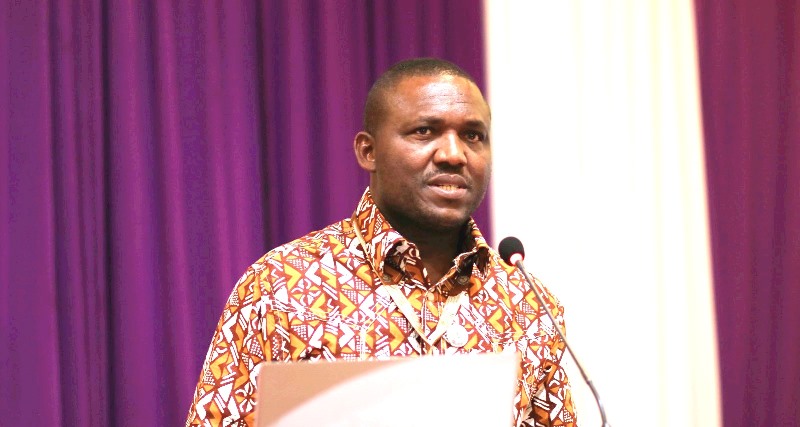
The Director General of National Productivity Centre (NPC), Dr. Kashim Akor, in this interview with COLLINS OLAYINKA, explains the importance of productivity in repositioning the economy for improved efficiency and increasing individual outputs.
What is productivity within the context of national development?
Productivity may seem to be a nebulous concept to most Nigerians, but it clearly defines the role of the National Productivity Centre in national development. It is the duty of the Centre to demystify the concept and reduce it to a level that it becomes understandable to the common man and how it can be factored into the way of life of individuals and organisational planning. Therefore, productivity is simply the ratio of output over input. In other words, it is where output represents the goods and services produced while inputs are the resources that went into the production process. So, in a nutshell, for productivity to increase, there is baseline to determine the level of resources that have been committed into production and the level of resources used within the period of measurement. If the same resources were used but now higher yields are achievable in terms of result and output, that means that productivity has indeed increased. When the same resources or even less resources are used and getting same or higher output, it also means that productivity has increased.
For people to understand easily, productivity is the efficient management of resources.
This brings to the fore the issue of innovation and value addition of resources. Efficiency means doing the right thing at the right time. Doing the right thing at the wrong time will not bring about the desired result. So, the right things must be done at the right time to get maximum result.
Another angle of productivity that is very important, which the Centre places high premium on is the attitude of the mind. The mind must be nurtured in such a manner that it seeks continuous improvement. It is like motivation, but there must be that internal driving force that seeks improvement for greater accomplishments. So, one would develop a mindset that whatever one is doing now, no matter how good it is, it can be improved upon. Attitude of the mind that seeks continuous improvement is very important.
What is the Centre doing to ensure the creation of that mindset in Nigerians?
The problem of most Nigerians in terms of productivity is attitude. Take the public service as an example. The attitude of most workers is that government job belongs to nobody. People fail to understand that the government is you and I and our work and behaviours toward it is what we get as a people. So, attitude is one key area we have been working on. The Centre has been able to put in place some strategies and activities that are aimed at drumming it into the psyche of Nigerians the need for them to be productivity conscious.
So, productivity consciousness is very important hence the need for mass sensitisation. Government must also address the issue of capacity building. Government must ensure deliberate building of capacities in terms of skills and competencies. The Centre has put in place productivity coaching and mentoring programmes. This is designed to catch the youths young. The programme is deliberately designed for students in secondary schools because we believe that if we can get it right at younger age, they will grow with the right mindset. The instrumentality used to deliver the productivity coaching and mentoring programme are basically lectures, debates, quizzes and other competitions amongst students. The whole essence is for them to imbibe the culture of productivity early in life. It is not just the students we are targeting. We have equally put in place a programme in conjunction with the office of Head of Civil Service of the Federation, which is called ‘productivity awareness creation for MDAs’. Although the COVID-19 pandemic is threatening the programme, it is aimed at ensuring that the Centre is at least in one MDA in a week giving non-fee paying productivity lectures to Federal Government workers, using our in-house expertise and a pool of consultants we have. The essence of that, is to create desired awareness and build productivity consciousness and a change of attitude for a positive thinking about always wanting to improve on our productivity no matter the level we are at any moment.
What are the impacts of the annual Productivity Merit award in this repositioning of Nigerians’ mindsets?
The Productivity Order of Merit is a deliberate effort by government aimed at sensitising the citizenry on the strategic importance of productivity to national development and to reward hard work and excellence. We think that motivation is very important in driving productivity improvement. If we want people to perform well, they must be given the right tools and if they have done well, they should be appreciated. Every year, there is a Productivity Order of Merit Award committee made up of eminent Nigerians. The NPC is just the secretariat that coordinates and gets all the materials ready for the panel to sit. The members of the panel are eminent Nigerians that have distinguished themselves in their chosen fields.
The committee scrutinises the claims that have been made by organisations and government agencies, states, local government councils and the private sector that nominate people because the Centre sends nomination forms to these organisations to nominate individuals or organisations they think have done well within a given year. It is not the individuals that nominate themselves. For example, it is the Ministers and Permanent Secretaries that can nominate at the federal level while Commissioners or Secretary to the State Government (SSG) nominate at the state level. In the private sector, it is the leadership of such organisations such as President or Director General that can recommend. Part of the criteria we use is that there must be an evidence of outstanding achievement. The officers recommending are expected to have done their homework by ensuring that anyone that has been recommended have done really well. Among the criteria adopted included evidence of what has been done.
There must be acclaimed breakthroughs. Concerning organisations, organisations must show us evident of local materials used, how many Nigerians have been employed and how many have been trained? All these will eventually lead us to profit that has been made. We will also be asking what impact has that profit made in the lives of people living within the location of operation. Every year, we received more than 2,000 entries but not more than 30 persons and organisations have received the award in a given year. To underscore the importance this government attaches to productivity improvement efforts, President Buhari always make it a duty to attend the event. Last year that he did not make it to the award ceremony, but he created time to receive award recipients at the Aso Rock Presidential Villa for a presidential handshake and to acknowledge their contribution to national development.
What role can productivity improvement play in ensuring national development?
Productivity is key to economic development. A productive economy is an economy that will create wealth. When wealth is created, it generates jobs. When jobs are created, the standard of living of the people is enhanced. Invariably, productivity is the standard measurement used globally to define how healthy economies are. Indeed, productivity has no place for waste. Productivity is concerned about value-addition, innovation, creativity especially now that we are tending towards knowledge-based economy.













